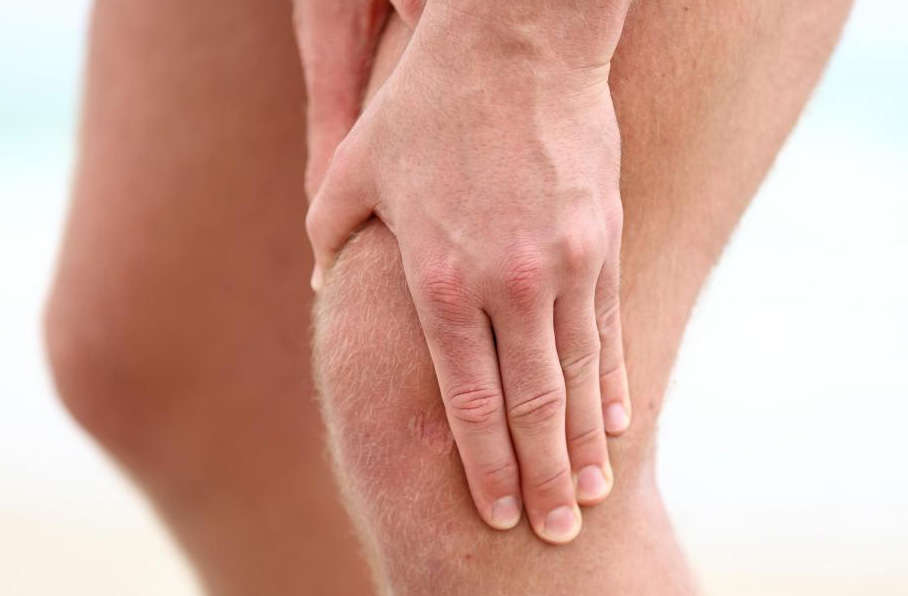In this article Ross Hauser, MD discusses research that shows that stem cell injection therapy will aid in the repair of articular cartilage and meniscus tears and that the treatment relieves symptoms of stiffness, pain, disability, and inability to walk as commonly reported by our patients.Your surgeons may be anxiously waiting the ability and training to offer stem cell therapy in their practices – here is the proof: Editorial January 2016 – The Journal of Arthroscopic and Related Surgery a publication of the Arthroscopy Association of North America.
“we are believers in stem cell therapy” and “stem cells have substantial potential to allow 21st century physicians and surgeons… to achieve unprecedented tissue healing and repair.”
Again, additional research is needed to prove the long-term outcomes and the actual cost to society of stem cell treatment for focal defects of the knee. We do believe that it is only a matter of time before the harvesting and growth of stem cells will become cost-effective and commercially available and will be added to our treatment options for restoration of articular cartilage.”
Doctors have long noted that there are limited treatment options for tissue restoration and the prevention of degenerative and osteoarthritic changes in the knee.
This is why stem cell therapy for knee osteoarthritis has generated so much excitement in the medical community. – it is the “unprecedented tissue healing and repair” A recent study proclaimed:
- Stem cell therapy is simpler than surgery
- Does not require hospitalization or surgery
- Provides pain relief
- and significantly improves cartilage quality.
This agrees with another study into the safety of stem cell injections into the knee, the ability of stem cells to promote meniscus regeneration following partial meniscectomy, and the effects of stem cells on osteoarthritic changes in the knee were investigated with results that support the study of human mesenchymal stem cells for knee-tissue regeneration.
The educated patient will also find that not all research is favorable to stem cell therapy at this time due to “great deal of heterogeneity in treatment methods,” the great variety of ways stem cell therapy is performed, some variations are not as potent as others, and the inability to come up with a gold standard platform to conduct clinical trials.
Seemingly the same issues that critics of Prolotherapy and Platelet Rich Plasma Therapy (PRP) point to. Variations in treatments and inability to conduct true controlled studies because of the nature of the treatment.
One such variation is being led by researchers in China who have explored replacing apoptotic chondrocytes (dead or dying cartilage cells) in the superficial cartilage by injecting mesenchymal stem cells (MSCs) intra-articularly. This effect was termed as bio-resurfacing.

Stem Cell Injection Therapy For Knee Osteoarthritis
The tendons, muscles and ligaments of the knee are centered around the articular cartilage which is very important for flexibility and stabilization of the knee that allows it to bend and move freely about. This strong point of the joint too becomes its downfall. The loosening of ligaments is what brings about instability of the knee. This instability allows abnormal wear and tear on the cartilage, resulting in swelling of the joint and possibly overgrowth of the bone in attempt to stabilize the joint (this is known as osteoarthritis). Degeneration of or damage to this cartilage can lead to pain in the knee.
In the Stem cell therapy procedure for knee osteoarthritis, bone marrow stem cells (in many cases) are drawn from a patient and injected into the patient’s knee with the hope of repairing cartilage and bone damage typical of a knee with severe osteoarthritis. The procedure is simple in concept, inject stem cells, heal knee.
Can stem cell therapy regenerate meniscus and cartilage?
The latest scientific literature is telling us yes and that is why researchers and doctors are focusing on alternative methods for cartilage preservation and repair. Cell-based therapy has become a key focus of tissue engineering research to achieve functional replacement of articular cartilage.
In examining the latest research, doctors acknowledge that a new strategy is required in treating extensive meniscus injuries and defects. This new strategy is Mesenchymal stem cells (MSCs). The doctors found (as we have found) repetitive injections of stem cells promoted meniscus regeneration and provided protection at the medial femoral articular cartilage.
In a year long follow up, doctors followed up previously published research with new data that shows stem cell therapy regrows cartilage in animal models and that their 2015 research showed that one year later they say that the stem cell therapy tissue engineered cartilages provided evidence of functional recoveries associated to the structural regenerations, and their mechanical properties were comparable with the native cartilage.

Can stem cell therapy stimulate hyaluronic acid production?
New research suggests that part of the healing process of stem cell therapy is the treatment’s ability to stimulate hyaluronic acid production. Hyaluronic Acid is a fluid in your knee that helps lubricate and cushion the joint. It occurs naturally in the joint – hyaluronic acid injections have been widely used in osteoarthritis treatment.
Stem cell injection therapy – use during surgery
Based on editorials and accompanying studies like those above, it is becoming more and more apparent that stem cell injection therapy will be the orthopedic treatment of choice for a new generation of orthopedists. Why the confidence in saying this? Because stem cell therapy is becoming thoroughly embraced by the surgical community. In this study’s abstract, doctor’s make an amazing statement.
“A new bone-marrow-derived mesenchymal stem cells technique has been developed for the treatment of osteochondral lesions of the knee.
Thirty patients with osteochondral lesions underwent arthroscopic one-step procedure. The bone marrow was harvested from the patients’ posterior iliac crest and arthroscopically implanted with a scaffold into the lesion site. . .Control MRI and bioptic samples showed an osteochondral regeneration of the lesion site. The one-step technique appears to be a good and reliable option for treatment of OLK at three years of follow-up.”
Incredible. A new technique has been developed – surgery! Albeit it is a new technique to actually reduce the number of surgeries that might be need to offer stem cell treatments.
For the Comprehensive Prolotherapy skeptic, can there be more compelling evidence of the confidence in stem cell therapy as a major tool in the regeneration of cartilage and damaged tissue than the need to develop proper surgical interventions?
More research
“…most (surgical) approaches for delivering growth factors and stem cells have not been designed for dense connective tissues such as tendon. Therefore, we developed a scaffold capable of delivering growth factors and cells in a surgically manageable form for tendon repair.”14 In other words, in surgery they could not pinpoint the delivery of the growth factors. This may have lead to why surgeons developing injection techniques.
Writing in the medical journal titled Arthroscopy, researcher surgeons found that the results of their study showed: “intra-articular injection of infrapatellar fat pad-derived mesenchymal stem cells is effective for reducing pain and improving knee function in patients being treated for knee osteoarthritis.” 15 But a surgery was still involved, the stem cells from the kneecap area was harvested at the arthroscopic lateral portal site after the patient underwent arthroscopic debridement.
Stem Cell Therapy is, in our opinion, an alternative to surgery because most times the injections work better than the surgical introduction of stem cells.
In research published by the Journal of Bone and Joint Surgery, doctors have found that a single stem cell injection following meniscus knee surgery may provide knee pain relief and aid in meniscus regrowth. In this study, patients received a single injection of adult stem cells following the surgical removal of all or part of a torn meniscus. These patients reported a significant reduction in pain. Further, some meniscal tissue regrew! Up to 15 percent increase in meniscal volume at one year. There was no additional increase in meniscal volume at year two. (Comment: Maybe they should have given more than one injection.)
That question was seemingly answered in the American Academy of Orthopaedic Surgeons‘ press release. “The results of this study suggest that mesenchymal stem cells have the potential to improve the overall condition of the knee joint,” said Dr. Vangsness (a study author). “I am very excited and encouraged” by the results. With the success of a single injection, “It begs the question: What if we give a series of injections?”
Stem cell treatment for meniscus repair
Again, we have to ask, if it works so well in rebuilding meniscal tissue, why have the surgery in the first place? It does say multiple injections may benefit the patient more. It seems we have written very often that single injections are not Prolotherapy; single PRP injections are not PRP treatments; and now single Stem Cell injections are probably more effective if given more often? Sounds like Comprehensive Prolotherapy performed at Caring Medical, ie multiple injections of various and supportive elements to fit the individual case of the the patient.

There are no comments published yet.